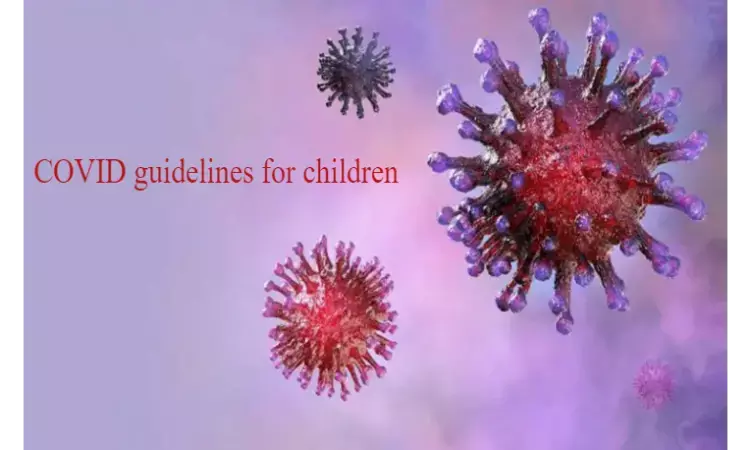- Home
- Medical news & Guidelines
- Anesthesiology
- Cardiology and CTVS
- Critical Care
- Dentistry
- Dermatology
- Diabetes and Endocrinology
- ENT
- Gastroenterology
- Medicine
- Nephrology
- Neurology
- Obstretics-Gynaecology
- Oncology
- Ophthalmology
- Orthopaedics
- Pediatrics-Neonatology
- Psychiatry
- Pulmonology
- Radiology
- Surgery
- Urology
- Laboratory Medicine
- Diet
- Nursing
- Paramedical
- Physiotherapy
- Health news
- Fact Check
- Bone Health Fact Check
- Brain Health Fact Check
- Cancer Related Fact Check
- Child Care Fact Check
- Dental and oral health fact check
- Diabetes and metabolic health fact check
- Diet and Nutrition Fact Check
- Eye and ENT Care Fact Check
- Fitness fact check
- Gut health fact check
- Heart health fact check
- Kidney health fact check
- Medical education fact check
- Men's health fact check
- Respiratory fact check
- Skin and hair care fact check
- Vaccine and Immunization fact check
- Women's health fact check
- AYUSH
- State News
- Andaman and Nicobar Islands
- Andhra Pradesh
- Arunachal Pradesh
- Assam
- Bihar
- Chandigarh
- Chattisgarh
- Dadra and Nagar Haveli
- Daman and Diu
- Delhi
- Goa
- Gujarat
- Haryana
- Himachal Pradesh
- Jammu & Kashmir
- Jharkhand
- Karnataka
- Kerala
- Ladakh
- Lakshadweep
- Madhya Pradesh
- Maharashtra
- Manipur
- Meghalaya
- Mizoram
- Nagaland
- Odisha
- Puducherry
- Punjab
- Rajasthan
- Sikkim
- Tamil Nadu
- Telangana
- Tripura
- Uttar Pradesh
- Uttrakhand
- West Bengal
- Medical Education
- Industry
Health Ministry issues revised COVID-19 guidelines on use of drugs, masks for children

New Delhi: Use of antivirals or monoclonal antibodies is not recommended for those less than 18 years of age, irrespective of the severity of COVID infection, and if steroids are used, they should be tapered over 10 to 14 days, subject to clinical improvement, the government said on 20 January.
In the 'Revised Comprehensive Guidelines for Management of COVID-19 in Children and Adolescents (below 18 years)', the health ministry also said that masks are not recommended for children aged five years and below. Those aged 6-11 years may wear it depending on the ability of the child to use a mask safely and appropriately under the direct supervision of parents, it said. Those aged 12 and above should wear a mask under the same conditions as adults, the ministry said.
Also Read:AYUSH Ministry issues revised advisory to fight against COVID-19
The available data from other countries suggests that the disease caused by the Omicron variant is less severe. However, there is a need for careful watch, as the current wave evolves, the ministry said. It categorised cases as asymptomatic, mild, moderate and severe.
According to the guidelines, COVID-19 is a viral infection and antimicrobials have no role in the management of uncomplicated COVID-19 infection. In asymptomatic and mild cases, antimicrobials are not recommended for therapy or prophylaxis, the ministry said.
In moderate and severe cases, antimicrobials should not be prescribed unless there is clinical suspicion of a superadded infection, the ministry said.
In case of septic shock, empirical antimicrobials, according to body weight, are frequently added to cover all likely pathogens based on clinical judgement, patient host factors, local epidemiology and antimicrobial policy of the hospital, it said. The guidelines stated that steroids are not indicated and are harmful in asymptomatic and mild cases of COVID-19.
They are indicated only in hospitalised severe and critically ill COVID-19 cases under strict supervision, the guidelines said. Steroids should be used at the right time, in the right dose and for the right duration, they stated. Corticosteroids may be used in rapidly progressive moderate and all severe cases, such as dexamethasone 0.15 mg/kg, maximum dose six mg once a day or methylprednisolone 0.75 mg/kg, maximum dose 30 mg once a day, the guidelines stated.
They can be continued for five to seven days and tapered up to 10-14 days, depending on clinical assessment on daily basis, they stated. Steroids should be avoided in the first three to five days since the onset of symptoms as it prolongs viral shedding, the guidelines stated.
Anticoagulants are not indicated routinely and all hospitalised children should be evaluated for risk of developing thrombosis and monitored for development of thrombosis, the ministry said. As far post-COVID-19 care is concerned, the guidelines stated that children with asymptomatic infection or mild disease should receive routine childcare, appropriate vaccination (if eligible), nutrition counselling, and psychological support on follow up.
In addition to the above, parents or caregivers of children, who suffered moderate to severe COIVD, during discharge from the hospital should be counselled regarding monitoring for persistence or worsening respiratory difficulty and explained the indications for bringing the child back to the facility, the guidelines stated.
Children who develop any organ-specific dysfunction during the hospital stay or subsequently should receive appropriate care, they said. These guidelines are dynamic and will be reviewed and updated, on the availability of new evidence, the ministry stated.
Medical Dialogues Bureau consists of a team of passionate medical/scientific writers, led by doctors and healthcare researchers. Our team efforts to bring you updated and timely news about the important happenings of the medical and healthcare sector. Our editorial team can be reached at editorial@medicaldialogues.in.


